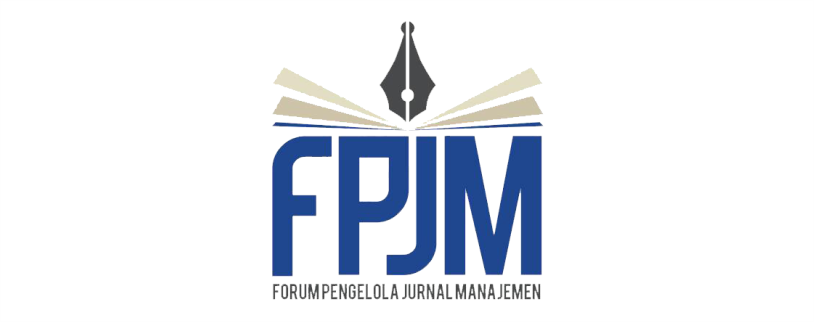The Management of Household Waste Based on Waste Bank to Increase Community Income in Surakarta City
DOI:
https://doi.org/10.26905/jmdk.v8i1.3545Keywords:
Creative Waste Products, Community Income. Household Waste, Waste Bank, Management,Abstract
This research is conducted to understand and analyze the management of household waste based on waste bank to increase community income in Surakarta city. A case study used with a purposive sampling of the Rejeki Lancar waste bank, which is a productive waste bank and is able to produce creative products from household waste recycling. The results show that the management of household waste that could increase community income began with the stages of establishing a waste bank, socializing the waste bank, technical training in waste management, implementing a waste bank system, and marketing creative products. The mechanism of the waste bank system itself consists of sorting waste, depositing waste, weighing waste, recording, and transporting waste. Constraints encountered are the lack of integration of the role of the government and the private sector in household waste management based on waste bank in terms of socialization, technical training, facilities and infrastructures of the waste bank, and marketing of creative waste recycling products. Therefore, government and private sector intervention is needed to support the running of household waste management based on waste bank and to increase the economic value of waste management in the community. https://doi.org/10.26905/jmdk.v8i1.3545Downloads
References
Alkadri, Muchdie, Suhandoyo. (1999). Tiga Pilar Pengembangan Wilayah, Pusat Pengkajian Kebijakan Teknologi Pengembangan Wilayah-BPPT, Jakarta.
Artiningsih, AK. (2008). Peran Serta Masyarakat dalam Pengelolaan Sampah Rumah Tangga (Studi kasus di Sampangan dan Jombang, Kota Semarang). Tesis Program Studi Ilmu Lingkungan. Universitas Dipenogoro Semarang.
Aryeti. (2011) Peningkatan Peranserta Masyarakat Melalui Gerakan Menabung pada Bank Sampah di Kelurahan Babakan Surabaya, Kiaracondong Bandung. Jurnal Permukiman, 6 (1 ), 40-46.
Asteria, Dona & Heru Heruman. (2016). Bank Sampah Sebagai Alternatif Strategi Pengelolaan Sampah Berbasis Masyarakat Di Tasikmalaya, Jurnal Manusia dan Lingkungan. Fakultas Ilmu Sosial dan Ilmu Politik. Universitas Indonesia. Depok
Creswell, J.W. (2010) Research Design: Pendekatan Kualitatif, Kuantitatif, dan Mixed. Yogyakarta: Pustaka Pelajar.
Djajanagara, S. (2004), Kajian Pengelolaan Sampah di Jawa Barat, Badan Penelitian dan Pengembangan Daerah Provinsi Jawa Barat, Bandung.
Jumar, dkk. (2014). Strategi Pengelolaan Sampah Rumah Tangga Di Urban village Lok Bahu Kecamatan Sungai Kunjang Kota Samarinda. eJournal Administrative Reform. 2(1), 771-782.
Koesrimardiyati, (2011). Keberlanjutan Pengelolaan Sampah Berbasis Masyarakat (Studi Kasus Peran Perempuan dalam Kegiatan Pengelolaan Sampah di RW 013 Cipinang Melayu Jakarta Timur) (tesis). Program Magister Ilmu Lingkungan, Universitas Indonesia.
Krisnandar, H. (2013). Pengelolaan Sampah Rumah Tangga Secara Mandiri Berbasis Masyarakat (Studi Kasus di Rukun Warga 01 Kelurahan Parakannyasag Kecamatan Indihiang Kota Tasikmalaya). Jurnal Universitas Siliwangi Tasikmalaya.
Maya, Siska., Haryono, Sugeng., & Kholisya, Umi (2017). Pemberdayaan Masyarakat Melalui Pengelolaan Sampah Menjadi Nilai Ekonomis dan Pembentukan Bank Sampah di Kelurahan Tanjung Barat. Proceeding of Community Development. 1, 157-161.
Miles, Matthew B. & A. Michael Huberman. 2009. Analisis Data Kualitatif. Jakarta: UI-Press.
Piyapong Janmaimool, (2017). Application of Protection Motivation Theory to Investigate Sustainable Waste Management. Behaviors Sustainability. 9(7),1079.
Sidarto, (2010). Analisis Usaha Proses Pengelolaan Sampah Rumah Tangga Dengan Pendekatan Cost and Benefit Ratio Guna Menunjang Kebersihan Lingkungan. Jurnal Teknologi, 3 (2)
Singhirunnusorn, W., Donlakorn, K., & Kaewhanin, W., (2012). Household Recycling Behaviours and Attitudes toward Waste Bank Project: Mahasarakham Municipality. Journal of Asia Behavioural Studies, 2(6),35-47.
Suryani, Anih Sri, (2014), Peran Bank Sampah dalam Efektivitas Pengelolaan Sampah (Studi Kasus Bank Sampah Malang). Pusat Pengkajian, Pengolahan Data dan Informasi DPR RI.
Winarso, H.& Larasati, A.. (2011.) Dari Sampah Menjadi Upah: Inovasi Pengolahan Sampah di Tingkat Akar Rumput Kasus Program Bank Sampah “Sendu†di Urban village Pasar Minggu Jakarta Selatan. Jurnal Manusia dan Lingkungan, 18(1), 43-59.
Yin, R. (1994). Case study research: Design and methods (2nd ed.). Sage Publications, Thousand Oaks, CA.
Downloads
Published
Issue
Section
License
Authors who publish with this journal agree to the following terms:
(1)Â Copyright of the published articles will be transferred to the journal as the publisher of the manuscripts. Therefore, the author confirms that the copyright has been managed by the journal.
(2) Publisher of Jurnal Penelitian is University of Merdeka Malang.
(3) The copyright follows Creative Commons Attribution–ShareAlike License (CC BY SA): This license allows to Share — copy and redistribute the material in any medium or format, Adapt — remix, transform, and build upon the material, for any purpose, even commercially.












